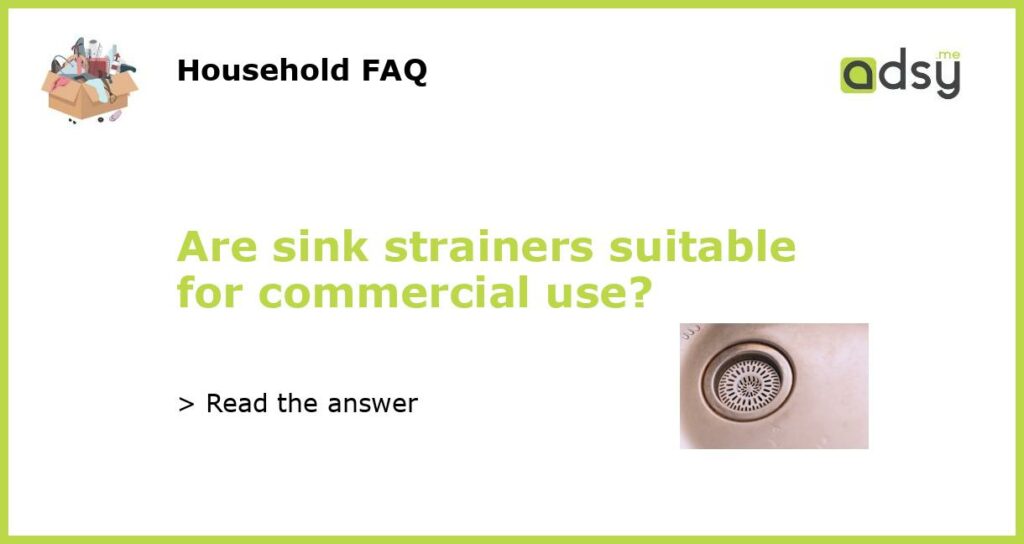Are Sink Strainers Suitable for Commercial Use?
When it comes to commercial kitchens, every piece of equipment needs to be durable and efficient. Sink strainers are no exception. These small devices play a crucial role in preventing clogs and keeping drains clear. But are sink strainers suitable for commercial use?
What Is a Sink Strainer?
Before determining suitability for commercial use, let’s first understand what a sink strainer is. A sink strainer, also known as a drain strainer or drain stopper, is a small device that sits in the drain opening of a sink. It acts as a filter to prevent debris, food particles, and other solid waste from entering the drainage system, thus preventing clogs.
Sink strainers usually consist of a stainless steel or plastic basket with small holes or perforations that allow water to flow freely while capturing any solid waste. They are commonly used in residential kitchens, but their usefulness in commercial settings is up for debate.
Advantages of Sink Strainers in Commercial Kitchens
There are several advantages to using sink strainers in commercial kitchens:
Prevents Clogs:
The primary function of a sink strainer is to prevent clogs. Commercial kitchens generate a significant amount of food waste and debris that can easily clog drains. By installing sink strainers, you can significantly reduce the likelihood of clogs, which can save you from costly plumbing repairs and downtime.
Improves Drainage System Efficiency:
Clear drains are crucial for efficient operation in a commercial kitchen. Sink strainers prevent solid waste from entering the drainage system, ensuring smooth and uninterrupted flow. This can help maintain the overall efficiency of the drainage system, preventing slowdowns and back-ups.
Disadvantages of Sink Strainers in Commercial Kitchens
While sink strainers offer advantages, there are also some considerations to keep in mind:
Risk of Contamination:
In commercial kitchens, sink strainers can accumulate a significant amount of food waste and debris. If not cleaned regularly and adequately, they can become a breeding ground for bacteria and other harmful microorganisms. Regular cleaning and maintenance are essential to mitigate this risk.
Reduced Water Flow:
Commercial kitchens often require a high volume of water for cleaning and food preparation. Sink strainers can restrict water flow if not properly sized or maintained. This can lead to longer wait times for water to drain and can slow down kitchen operations. Regular cleaning and maintenance can help prevent this issue.
Best Practices for Using Sink Strainers in Commercial Kitchens
To make the most of sink strainers in commercial kitchens, follow these best practices:
Choose the Right Size:
Ensure that the sink strainers you select are appropriately sized for the drain openings in your commercial sinks. Using strainers that are too small can lead to clogs, while those that are too large can impede water flow.
Regular Cleaning and Maintenance:
Clean sink strainers regularly to prevent the buildup of food waste and debris. Remove any trapped solid waste and rinse the strainer thoroughly. Consider implementing a schedule for routine cleaning and maintenance to ensure optimal performance.
While sink strainers can be suitable for commercial use, it is important to consider the unique needs and demands of your commercial kitchen. Regular maintenance and proper sizing are key to ensuring their effectiveness.
Sink strainers can be a valuable addition to commercial kitchens, helping to prevent clogs and improve drainage system efficiency. However, it is crucial to carefully consider the risks and benefits, including regular maintenance and proper sizing. By taking these factors into account, you can determine whether sink strainers are suitable for your commercial kitchen.






